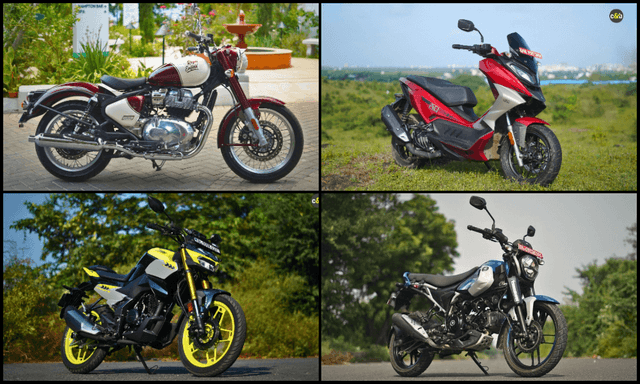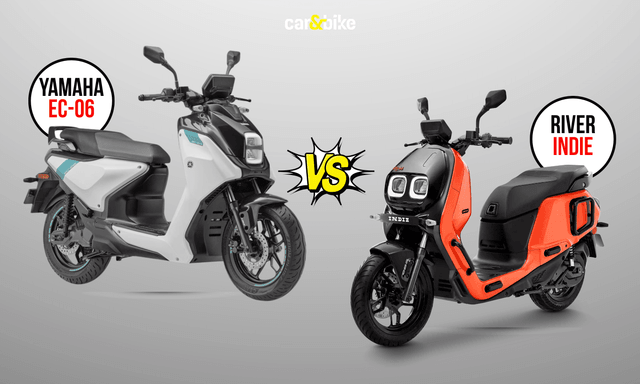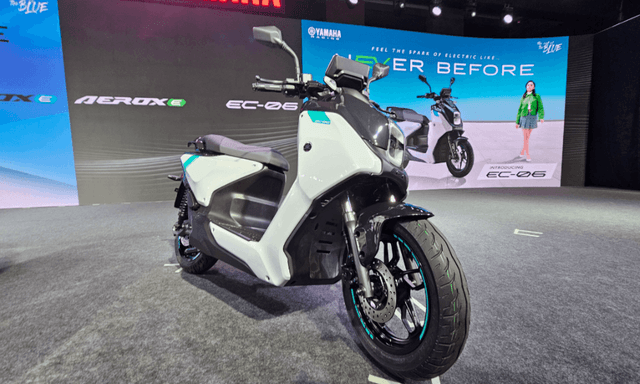Tata Punch Crash Tested; Gets 5-Star Safety Rating From Global NCAP

- The Tata Punch has scored 16.45 out of 17 points for adult safety
- The Punch also got 40.89 out of 49 points for child occupant safety
- The Punch is the 3rd Tata car to get 5 stars for safety from Global NCAP
In what should come as no surprise to many - the Tata Punch has scored 5 Stars from safety rating agency Global NCAP. The micro-SUV was crash tested and has punched way above its weight as it were, to come off with this score for adult occupant protection. The part about it not being a surprise goes to Tata's recent track record, as also the company's stated commitment towards building safer cars. The bit that is going to raise eyebrows? Being able to achieve such scores at the entry end of the market with such a small car - scores that are higher than the Nexon's and Altroz's.
When it launches next week, the Tata Punch will compete against the likes of the Hyundai Grand i10 Nios and Maruti Suzuki Swift - even though in terms of attributes and segment there is no exact like rival. The Punch's body shell has been rated stable, and the car has scored an impressive 16.45 out of a possible 17 points for Adult Occupant Safety. This now makes it the highest rated car in all crash tests Global NCAP has conducted under its Safer Cars For India programme.
Also Read: Tata Punch India Launch On October 18, 2021

The Tata Punch has received the best child occupant safety rating for an Indian-made car crash tested by Global NCAP
The Tata Punch has also scored impressively for Child Occupant Protection with a solid 4 Stars. The score here was also the best yet for an Indian-made car crash tested by Global NCAP, at 40.89 of a possible 49 points. Until now the Mahindra XUV300 was the only car to have the distinction of a 4 Star crash rating for child safety. It must be noted though that the two cars use different CRS or a Child Restraint Systems. And so the scores are not comparable at face value. Global NCAP always uses CRS in its testing - that is in-line with what the manufacturer recommends in the marketplace to it buyers.
Also Read: New Tata Punch Micro SUV: All You Need To Know

Rearward facing child seats were indicated as ideal for the Tata Punch, and that has helped it get the high score
In the case of the Tata Punch, rearward facing seats were indicated as ideal. And that has helped the score to be higher as well. Alejandro Furas, Secretary General of Global NCAP said, "Our test procedures demonstrate Tata's progress in becoming one of the safety leaders in the Indian market with our current protocols. As the protocols evolve to include electronic stability control (ESC), side impact head protection and pedestrian protection, we would encourage Tata to maintain this leadership position."
undefinedThe @TataMotors Punch achieves 5 star rating for adult protection in Global NCAP's latest #SaferCarsForIndia crash tests.
— GlobalNCAP (@GlobalNCAP) October 14, 2021
Read the full story here: https://t.co/K7tIaqaeVR#MissionZero2050 pic.twitter.com/G5bPipeC9Q
Commenting on the latest feat, Shailesh Chandra, President, Passenger Vehicles Business, Tata Motors, said, "We are proud to have delivered yet another product that will be regarded as the safest passenger vehicle on Indian roads. This landmark achievement by Tata Motors is also a testament of the fact that the automotive industry in India is capable of delivering the highest global standards of safety in vehicles."

The Punch's body shell has been rated stable, and the car has scored an impressive 16.45 out of a possible 17 points for Adult Occupant Safety
Global NCAP has recommended that Tata examine the possibility of offering the Punch with ESC, side head impact protection, and 3-point seatbelts in all seating positions - as standard. We have reached out to Tata Motors for both - a reaction to the result as well as whether it would be considering offering these above-mentioned features as standard on the Punch. No comment has been received by carandbike at the time of publishing this story. Global NCAP conducts self-sourced as well as voluntary tests of cars on a regular basis. The latter is when a manufacturer wishes to have a car tested, and is willing to bear the expenses incurred. Global NCAP then selects the vehicle for testing (by either buying one anonymously from a dealership, or if it is a pre-launch test - as is the case for the Punch - Global NCAP makes a random selection off the production floor. That car is then sealed and transported to the crash test facilities, assessed, and a technical report shared with the manufacturer. The findings - regardless of the result - are also shared by Global NCAP publicly. The Tata Punch has undergone a voluntary test.

Global NCAP has asked Tata Motors to consider offering ESC, side head impact protection, and 3-point seatbelts in all seating positions as standard with the Punch
Also Read: Tata Punch Tech Review: Micro SUV With Affordable Tech
David Ward, President of the Towards Zero Foundation said, "We are obviously delighted with Tata's safety result in this voluntary test. Global NCAP encourages manufacturers to participate in our programme on a voluntary basis to help create a market for safety." The Punch did well on the adult safety side, by offering protection to both front passengers' head, neck, and chest - as well as the knees. Unlike many larger cars tested off late, the body shell as also the footwell were both rated as stable, capable of withstanding further loading. As for the child safety score, the Punch offered good protection to the head and chest of both child dummies. Dual airbags, ABS (antilock brakes), and ISOFIX child seat anchors are standard on the Punch.
Also Read: The Tata Punch Micro SUV Review
The frontal-offset test was conducted at 64 kmph as per Global NCAP protocol. The Punch was also tested separately for side impact protection. The model tested in this case was a lower variant. The reason a higher variant (Creative trim) was used for the frontal impact test - was since a) the safety features remain same across all variants, and b) alloy wheels on the Creative. The alloy wheels' stiffness means they don't absorb as much of the crash impact - and so more of that energy is allowed to travel to the body. This gives the worst-case scenario picture, as steel wheels are softer by comparison and would absorb a lot of the crash energy. Ward also said, "It remains disappointing that not all car makers in the Indian market have such a strong commitment to safety improvements."
Latest News
 car&bike Team | Feb 2, 2026Car Sales January 2026: Six Marutis in Top 10, But Tata Nexon Takes Top SpotTata Motors sold 23,365 units of the Nexon, creating a clear gap to the Maruti Suzuki Dzire, which finished second with 19,629 units.1 min read
car&bike Team | Feb 2, 2026Car Sales January 2026: Six Marutis in Top 10, But Tata Nexon Takes Top SpotTata Motors sold 23,365 units of the Nexon, creating a clear gap to the Maruti Suzuki Dzire, which finished second with 19,629 units.1 min read car&bike Team | Feb 2, 2026Maruti Suzuki Victoris Crosses 50,000 Sales Milestone In 4 monthsThe compact SUV launched at the onset of festive season has crossed the 50,000 sales mark in about 4 months1 min read
car&bike Team | Feb 2, 2026Maruti Suzuki Victoris Crosses 50,000 Sales Milestone In 4 monthsThe compact SUV launched at the onset of festive season has crossed the 50,000 sales mark in about 4 months1 min read car&bike Team | Feb 2, 2026Two-Wheeler Sales January 2026: Hero MotoCorp, TVS, Royal Enfield, Suzuki Report Sustained GrowthMost brands have reported year-on-year growth in the first month of CY26.2 mins read
car&bike Team | Feb 2, 2026Two-Wheeler Sales January 2026: Hero MotoCorp, TVS, Royal Enfield, Suzuki Report Sustained GrowthMost brands have reported year-on-year growth in the first month of CY26.2 mins read car&bike Team | Feb 2, 2026Maruti Suzuki Announces Price Protection Amid Long Waiting PeriodsCountry’s largest carmaker has said that prices of the cars will not be increased for customers who have already made the bookings1 min read
car&bike Team | Feb 2, 2026Maruti Suzuki Announces Price Protection Amid Long Waiting PeriodsCountry’s largest carmaker has said that prices of the cars will not be increased for customers who have already made the bookings1 min read Jafar Rizvi | Feb 2, 2026Yamaha EC-06 vs River Indie: How Different Are The Two Electric Scooters?The EC-06 shares its foundation with the River Indie, and here we look at the differences between the two.3 mins read
Jafar Rizvi | Feb 2, 2026Yamaha EC-06 vs River Indie: How Different Are The Two Electric Scooters?The EC-06 shares its foundation with the River Indie, and here we look at the differences between the two.3 mins read Jafar Rizvi | Feb 2, 2026Yamaha EC-06 E-Scooter Launched In India At Rs 1.68 LakhThe EC-06 marks Yamaha’s entry into the electric scooter segment in India.2 mins read
Jafar Rizvi | Feb 2, 2026Yamaha EC-06 E-Scooter Launched In India At Rs 1.68 LakhThe EC-06 marks Yamaha’s entry into the electric scooter segment in India.2 mins read
 Preetam Bora | Feb 2, 2026TVS NTorq 150 Road Test Review: Bigger, Better & More Efficient!We test the new TVS NTorq 150 out in the real world to get a sense of what it offers in terms of performance, dynamics and fuel economy.7 mins read
Preetam Bora | Feb 2, 2026TVS NTorq 150 Road Test Review: Bigger, Better & More Efficient!We test the new TVS NTorq 150 out in the real world to get a sense of what it offers in terms of performance, dynamics and fuel economy.7 mins read Bilal Firfiray | Jan 21, 2026Tata Punch Facelift Review: New Turbo Engine; Same Old SoulWith the update, the Tata Punch facelift retains its character of being a healthy runabout, which is perfect for Indian roads. But have these changes made it any better?7 mins read
Bilal Firfiray | Jan 21, 2026Tata Punch Facelift Review: New Turbo Engine; Same Old SoulWith the update, the Tata Punch facelift retains its character of being a healthy runabout, which is perfect for Indian roads. But have these changes made it any better?7 mins read Amaan Ahmed | Jan 17, 2026Bajaj Chetak C25 First Ride Review: Basic, Likeable E-Scooter For First-Time RidersThe Chetak C25, in quite a few ways, is poles apart from the larger and more powerful 30 and 35 Series models, but in its mannerisms, it is very much a Chetak.8 mins read
Amaan Ahmed | Jan 17, 2026Bajaj Chetak C25 First Ride Review: Basic, Likeable E-Scooter For First-Time RidersThe Chetak C25, in quite a few ways, is poles apart from the larger and more powerful 30 and 35 Series models, but in its mannerisms, it is very much a Chetak.8 mins read Bilal Firfiray | Jan 9, 2026Toyota Urban Cruiser Hyryder: 10,000 km Long-Term ReviewAfter spending over three months and 10,000 km with the Toyota Urban Cruiser Hyryder Hybrid, we were impressed by its real-world mileage, seamless hybrid, practical comfort, and Toyota reliability. Is it the best C-SUV then?5 mins read
Bilal Firfiray | Jan 9, 2026Toyota Urban Cruiser Hyryder: 10,000 km Long-Term ReviewAfter spending over three months and 10,000 km with the Toyota Urban Cruiser Hyryder Hybrid, we were impressed by its real-world mileage, seamless hybrid, practical comfort, and Toyota reliability. Is it the best C-SUV then?5 mins read Seshan Vijayraghvan | Jan 8, 20262026 Mahindra XUV 7XO Review: Big On Tech, Bigger On ComfortThe new Mahindra XUV 7XO is flashier, feature packed, and comes with more advanced tech. But are the changes just incremental or actually substantial?1 min read
Seshan Vijayraghvan | Jan 8, 20262026 Mahindra XUV 7XO Review: Big On Tech, Bigger On ComfortThe new Mahindra XUV 7XO is flashier, feature packed, and comes with more advanced tech. But are the changes just incremental or actually substantial?1 min read











































































































































